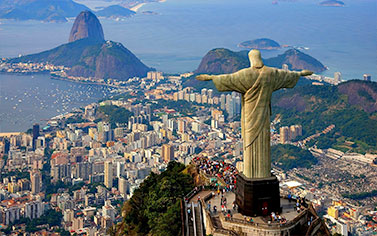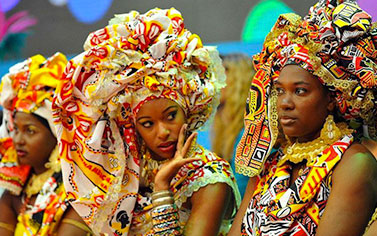African Heritage of Latin America
For most people the idea of Afro-American experience is relegated to the United States. While Africa and America are often recognized as the book ends of the African Diaspora, there is an additional link in the Middle Passage that is less publicized, but no less important. The history of African slavery and forced migration to the Americas is not limited to the United States. Today Brazil has the largest population of Black origin outside of Africa, estimated at 90 million people.
Afro-Latin American or Black Latin American, refers to Latin Americans of significant African ancestry. The term may also refer to historical or cultural elements in Latin America and the Caribbean thought to have emanated from this community. Leading in numbers is Brazil with the largest population of Black origin outside of Africa, estimated at 90 million people. Starting around 1550, the Portuguese began trading slaves from the West African and Central African regions of Ghana, Benin, Nigeria, Angola, Congo and Mozambique. An estimated four million people, thirty seven percent of all the captured Africans forced into slavery, were settled in Brazil to work in the sugar plantations and mining industry. Slavery was the foundation of the Brazilian economy until 1888 when slavery was legally abolished.
As with all great migrations, the Africans that arrived in Brazil not only brought over their strength and beauty but also their music and cultural traditions. Their cultural traditions would inevitably blend with the Portuguese and Amerindian customs, to produce a unique cultural manifestation of its own. The same holds true throughout the Americas where the Afro-culture found its way to mainstream to create a blend of cultures throughout the region.
Afro-Brazil Experience
From Carnival and samba, to food, music, religion and dance, African culture dominates everywhere and most everything in Brazil.
Afro-Brazil, Salvador Bahia
Once the magnificent capital of Portugal’s New World colony, today Salvador is the pulsating heart and soul of Brazil.


